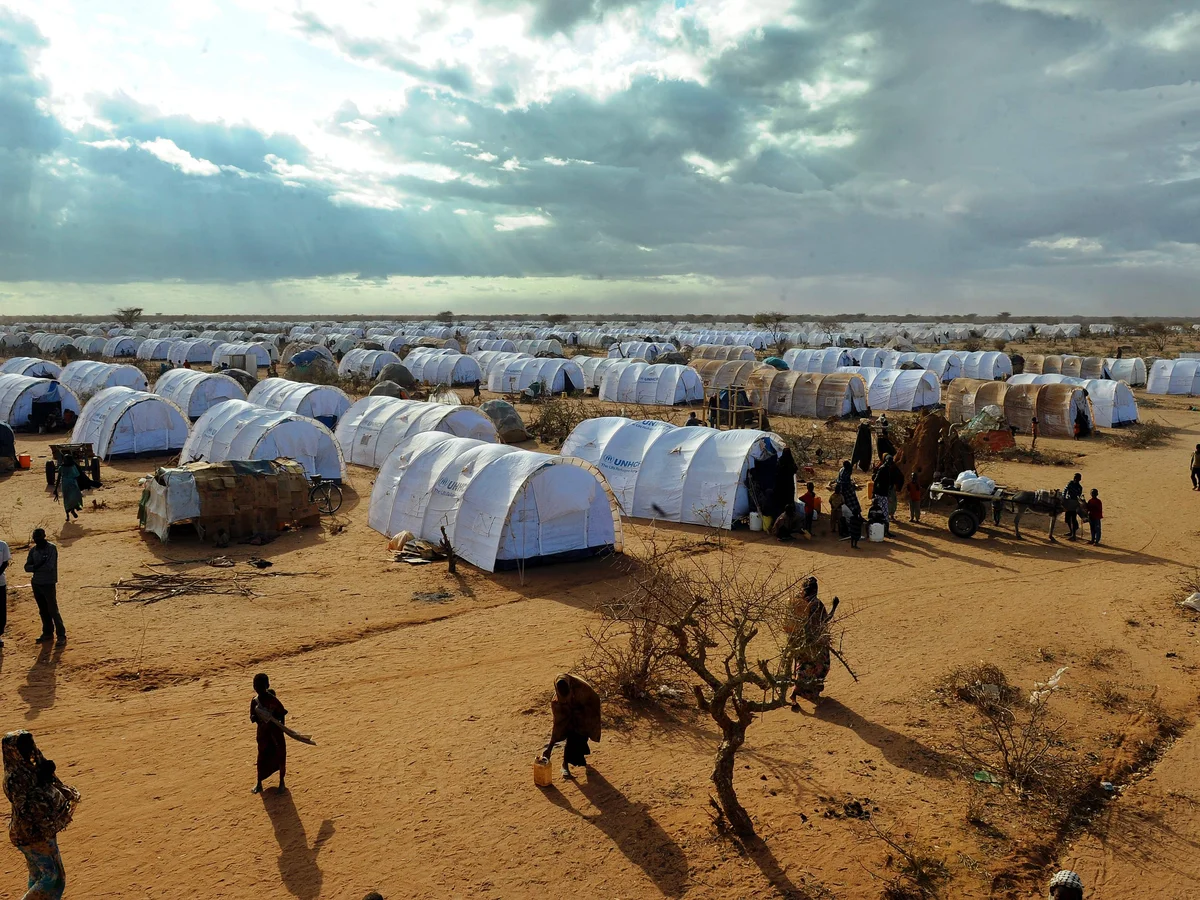Refugee families in the Dadaab camp complex are voicing frustration and fear after the UN World Food Programme (WFP) introduced a new aid allocation system that has left some households without the food supplies they once depended on.
The programme, rolled out in recent weeks, categorises refugees into three groups according to an assessment of their vulnerability.
Those deemed least in need have been removed from the food distribution lists.
The WFP says the change is necessary to ensure the most vulnerable receive assistance amid funding shortfalls.
Refugees say the cut-off has triggered a crisis across all the camps in the complex.
“We are already living in extreme poverty,” said Saadia Warfa, a Somali refugee mother in Hagadera camp, one of the Dadaab complexes.
“The food we received was our only lifeline. Now we have nothing,” she said.
Sadik Ahmed, a father of five, described the announcement as “a shock we could not prepare for.”
He added that his family now sometimes survives on nothing more than black tea and scraps of bread.
“We were not asked, we were not consulted. They just told us our names were no longer on the list,” he said.
Dadaab, located in Garissa County near the Somali border, is one of the world’s largest and longest-running refugee camps.
Established in the early 1990s to house those fleeing Somalia’s civil war, it now hosts about 500,000 people, most of them Somalis.
Chronic underfunding has plagued the camp for years, but residents say the latest ration cuts are among the harshest they have experienced.
Humanitarian workers warn that removing rations from thousands of families in such a fragile environment risks pushing people into extreme hunger, malnutrition and desperate coping strategies.
Many camp residents have no income, cannot legally work and rely entirely on aid to survive.
Felix Okech, the WFP head of refugees and emergency operations, said the agency is facing unprecedented funding constraints, forcing it to focus on those judged to be most at risk.
“Globally, the agency has been struggling to maintain operations as donor contributions decline and food prices rise,” said Okech.
In Kenya, the organisation has already reduced food rations for all refugees in recent years.
The approach has marked a shift towards ration exclusion for some households entirely.
Local leaders in Dadaab have appealed to the Kenyan government and international partners to urgently review the scheme and mobilise more resources.
“These are human lives,” said Liban Hussein, an elder. “You cannot categorise hunger and expect the ones excluded to survive.”
Maryan Kasay said the loss of aid strikes deeper than empty stomachs. For her, it is about dignity, hope and the will to endure.
“It feels as if the world has turned its back on us,” she said, cradling her malnourished toddler.
“We ran from war, we survived the drought, but this could be the blow we cannot withstand.”
